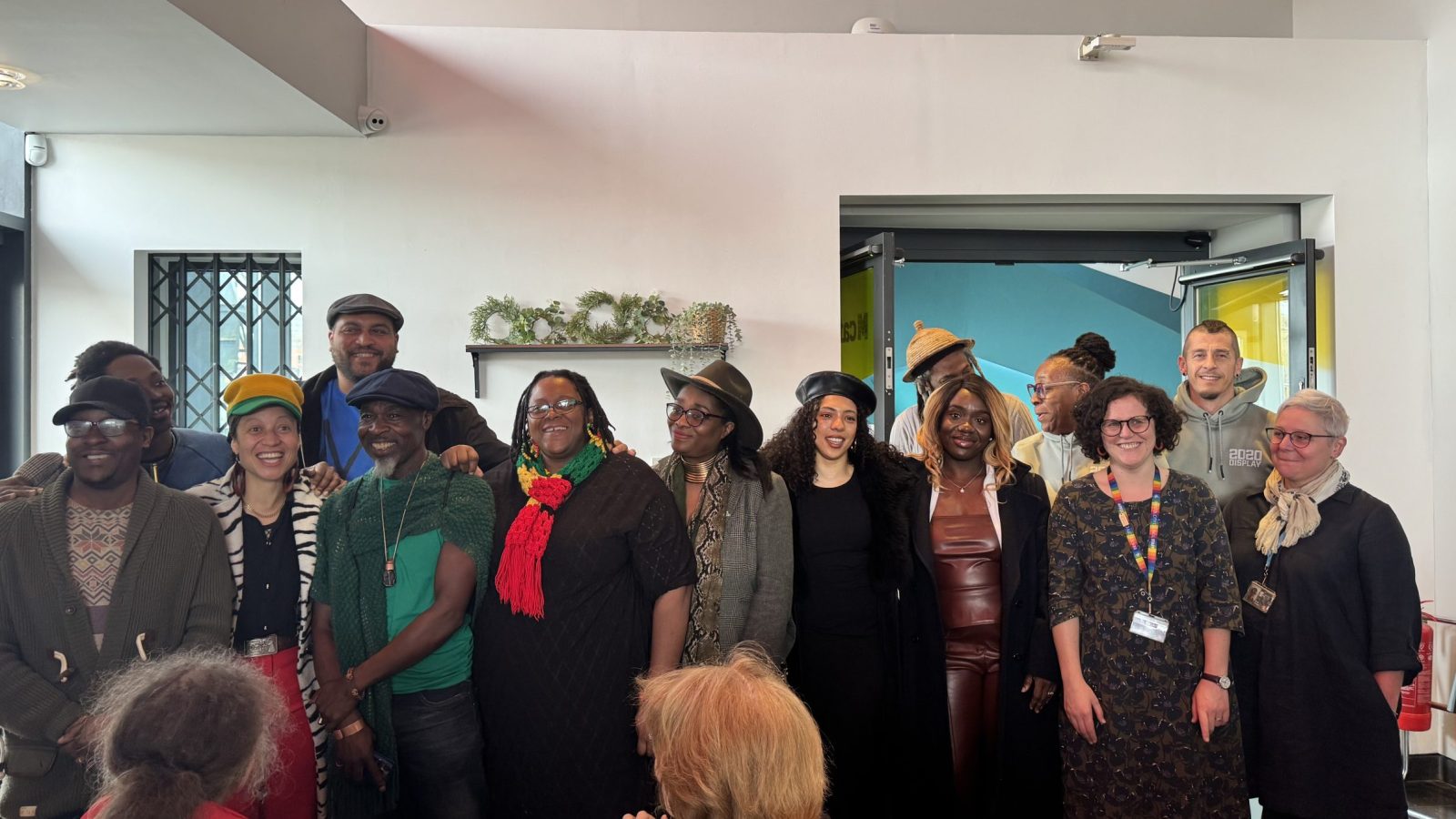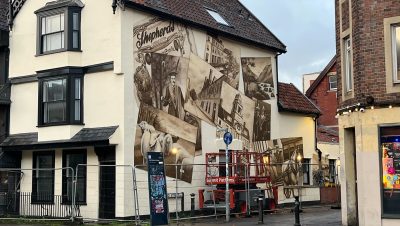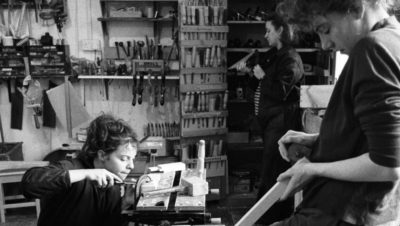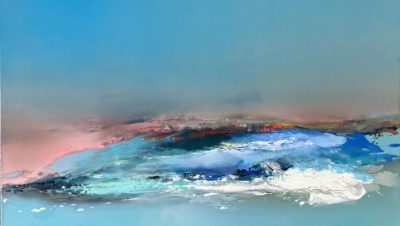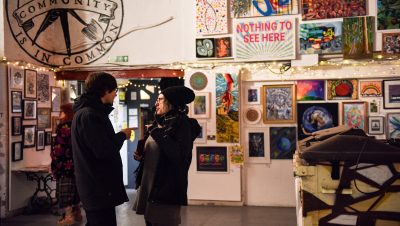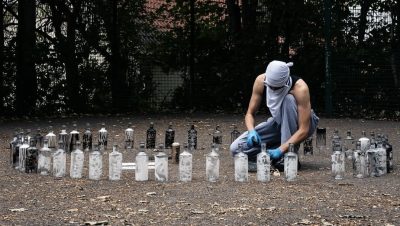Art / Julz Davis
GRIOT opens at M Shed
GRIOT has opened to the public at M Shed on Tuesday.
The exhibition is put together by six people of colour from Bristol, known as the Rebel Curators, they bring their lived experience, commitment and ideas to the table to to reclaim the narrative of the transatlantic trade of enslaved Africans.
The curators are Clive Smith, Jacqueline Braithwaite, Natasha Harrison, Augustina Ama Nkrumah-Duah, Ella Scotland-Waters and Adreann Asibey.
is needed now More than ever
The interactive exhibition uses a combination of medias including digital storytelling, poetry, art and contemporary reflections.
Recognising the need for an Afro-centric and accessible approach, they co-created a new set of interventions to transform the gallery space, ensuring the histories of African and Caribbean people are told with depth, dignity, and authenticity.
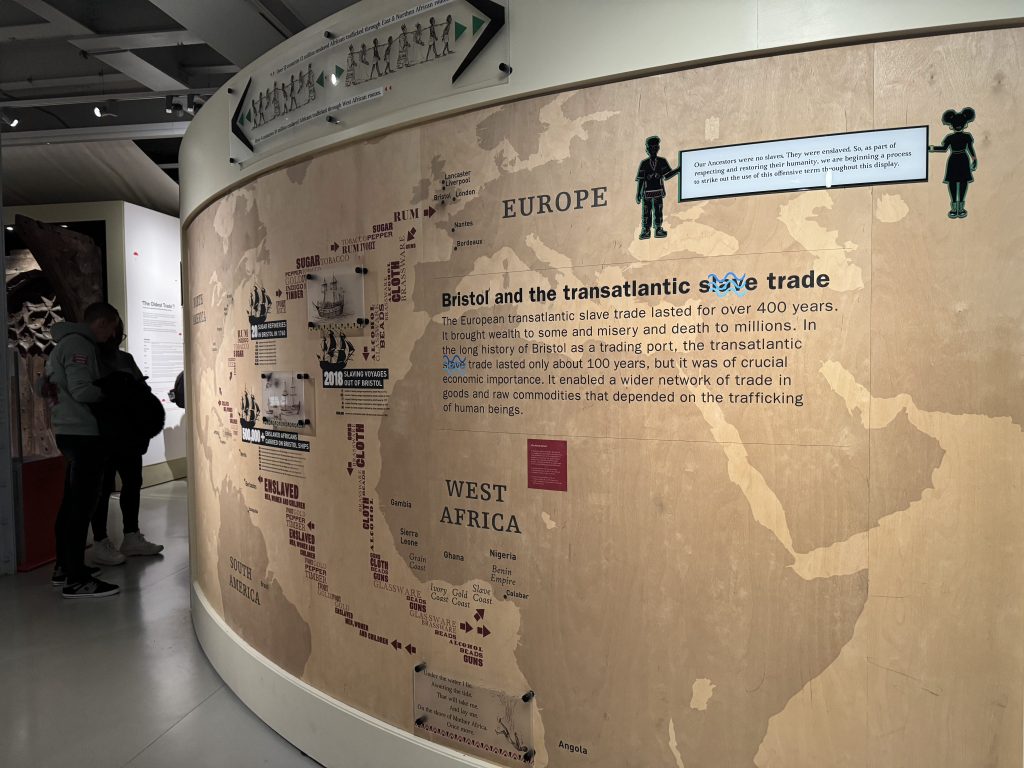
GRIOT explores reparations, resistance, and resilience.
The work attempts to bridge the past and present, challenging audiences to confront the enduring legacies of the transatlantic slave trade with research into how those who profited funnelled money into organisations and buildings that exist in present day.
The exhibition was opened with speeches from several of those involved including exhibition organiser and creative practitioner Julz Davis.
Before beginning his speech Julz took a moment to repeat a tradition carried that they carried out at the beginning of each session with the Rebel Curators and that was to say Àṣẹ.
Julz explained that the tradition of Àṣẹ (a word that derives from the Yoruba-speaking people of West Africa) is to “recognise our ancestors, bringing them into this space and time. We do it with generosity, authenticity, we do it because we want to respect the past, while looking to the future.”
He then proceeded to call out names of those he and others in the room wished to honour.
Summarising their approach to the work, Julz Davis said: “We are not historians, but we are history.”
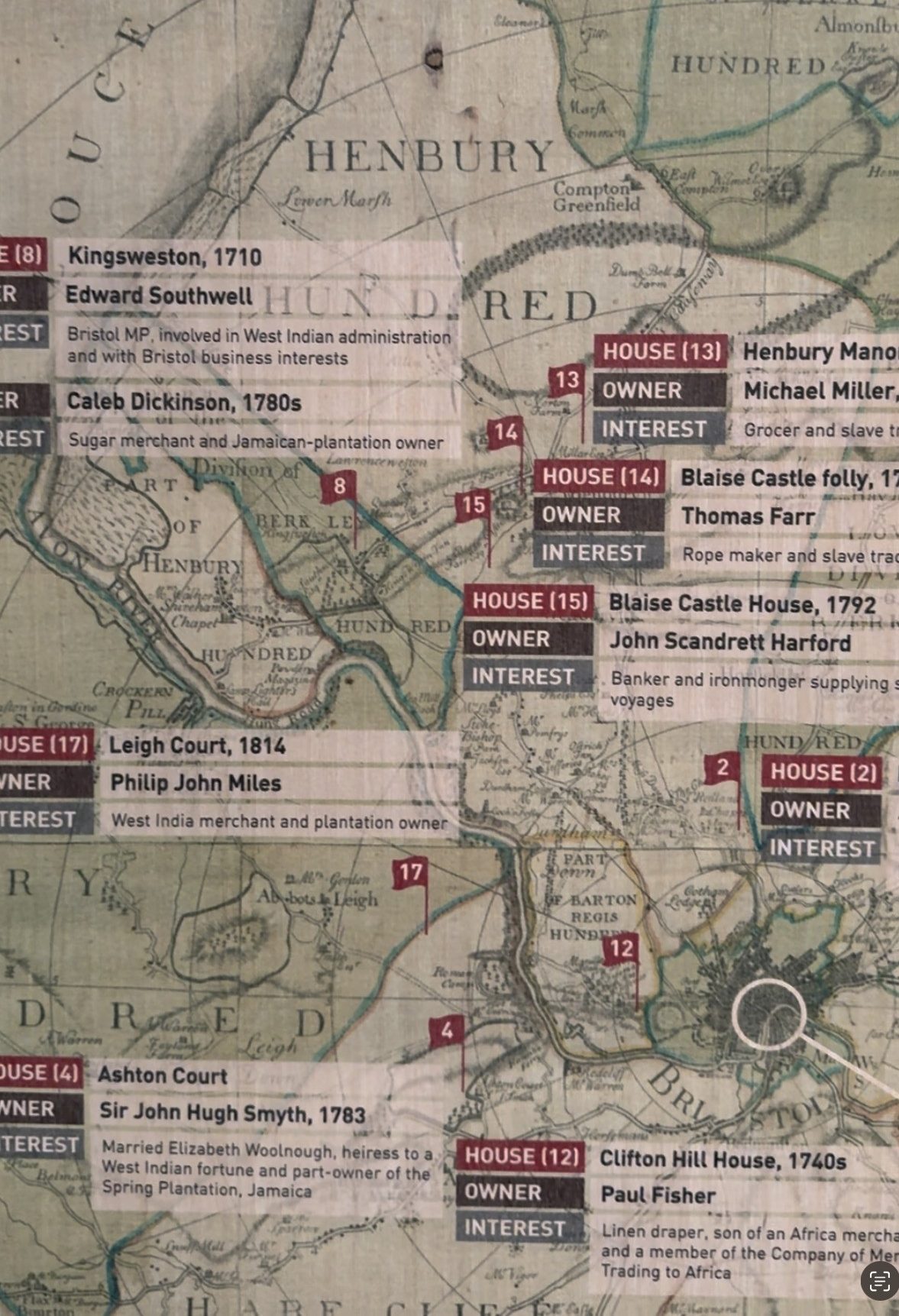
During Black History Month 2024, six Rebel Curators and three Rebel Creators came together to reclaim the narrative of the Transatlantic Trade in Enslaved Africans.
One of the curators Jacqueline Braithwaite also reflected on her work, she said: “This is the beginning of a new way of integrating our history.
“We all have a connection to Africa in one way or another. I have links to Europe and it’s important to recognise that.”
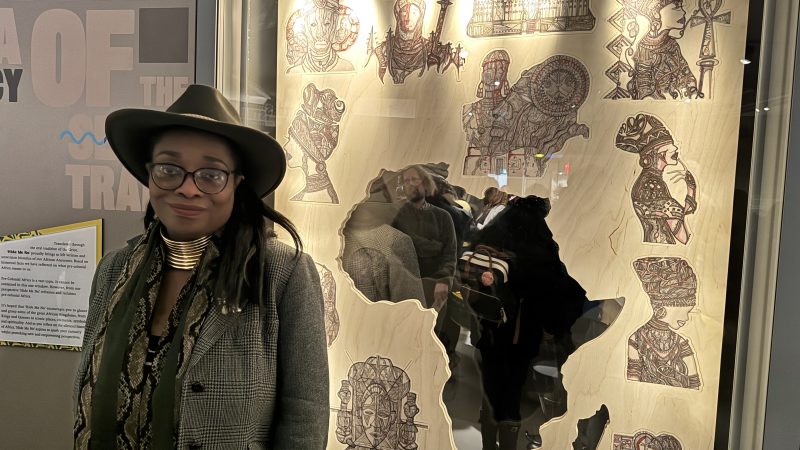
Jacqueline Braithwaite stood in front of her work, which is called ‘Hide Me No.’ Her sketches are based on significant historical figures from Africa such as the Queen of Sheba. Intricate details of stories and people are carved within the portraits.
Philip Walker, Bristol City Council’s head of culture and creative Industries, said: “In 2010 M Shed opened to showcase the history of Bristol. Much of the wealth in Bristol was directly and indirectly a result of the slave trade.
“Through recent years and much feedback from the public on our displays, with questions like does it go far enough? Does it respect the legacy of enslaved people? Are some artefacts reinforcing stereotypes?
“We realised that some them of our displays were indeed dated.”
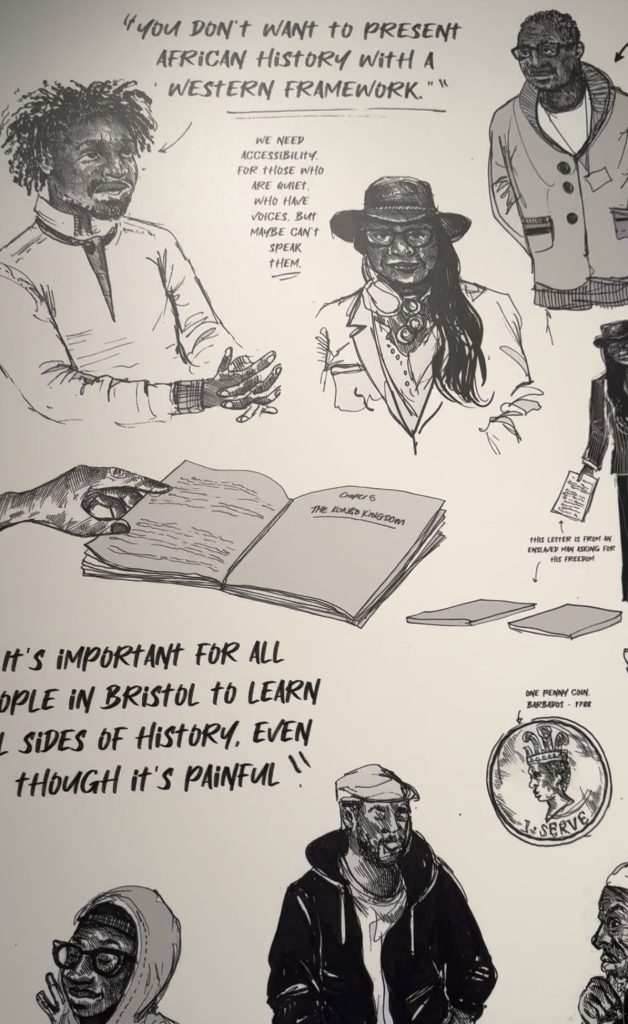
Illustrations from artist Jasmine Thompson, her work centres themes of culture, joy, liberation and activism.
One what’s next, the Rebel Curators said: “GRIOT’s additions to the original display are the first steps toward a much-needed transformation that M Shed will undertake over the coming years.
“While the Rebel Curators support this ambition in principle, we insist it’s backed with significant and sustainable investment.
“Black African and Caribbean communities must inform, shape, and play a key role in transforming this display.”
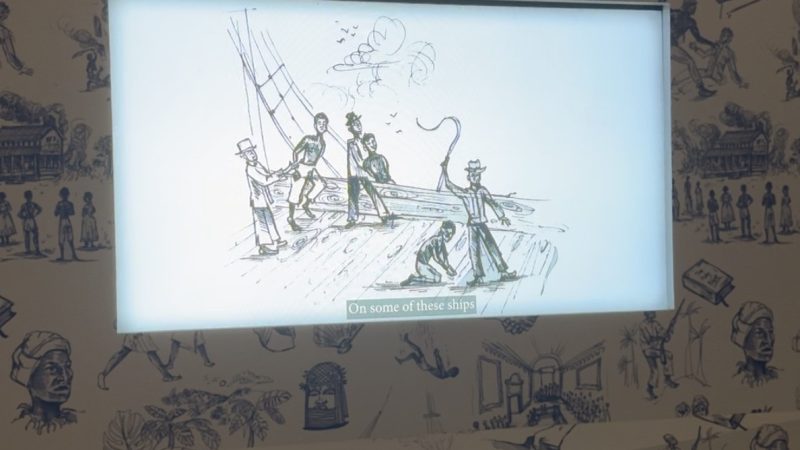
Michael Jenkins created the animated films
Named after the West African storytellers who preserve oral traditions, GRIOT invites visitors to engage with narratives of enslaved individuals and their descendants.
The display’s opening day also aligns with the United Nation’s designated day of Remembrance of the Victims of Slavery and the transatlantic slave trade.
Between 1698 and 1807 (when the Abolition of Slave Trade Act 1807), a known 2,108 ships left Bristol for Africa to exchange goods for enslaved Africans and take them to the Caribbean
Throughout the seventeenth and eighteenth centuries Britain’s slave traders transported over 3 million people. Some 500,000 enslaved Africans were carried on Bristol ships.
All photos: Hannah Massoudi
Read next:
 Our newsletters emailed directly to you
Our newsletters emailed directly to you